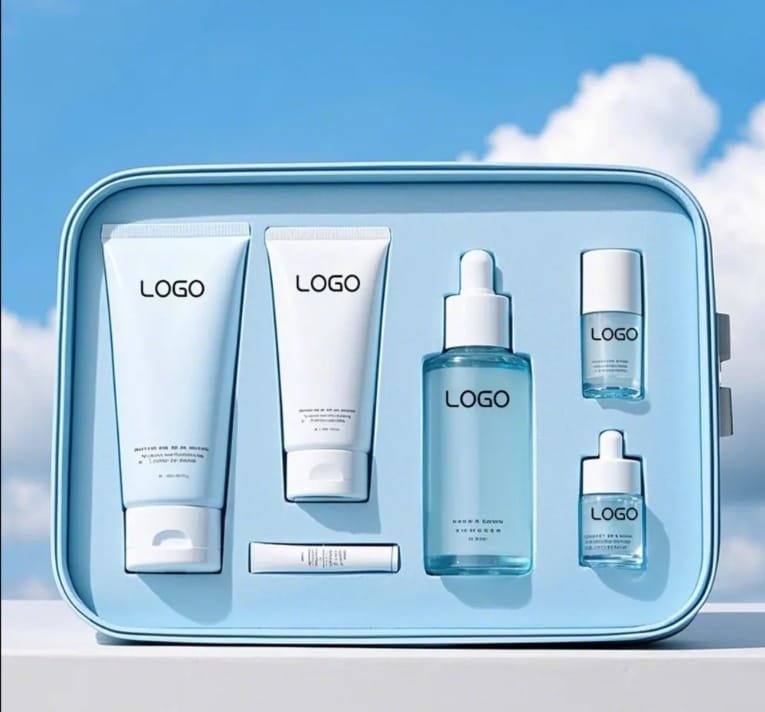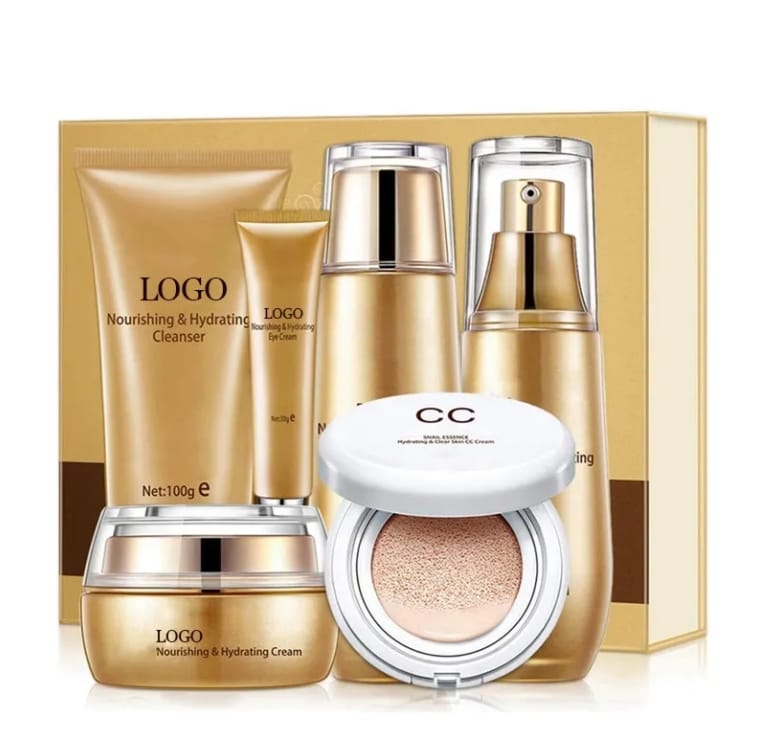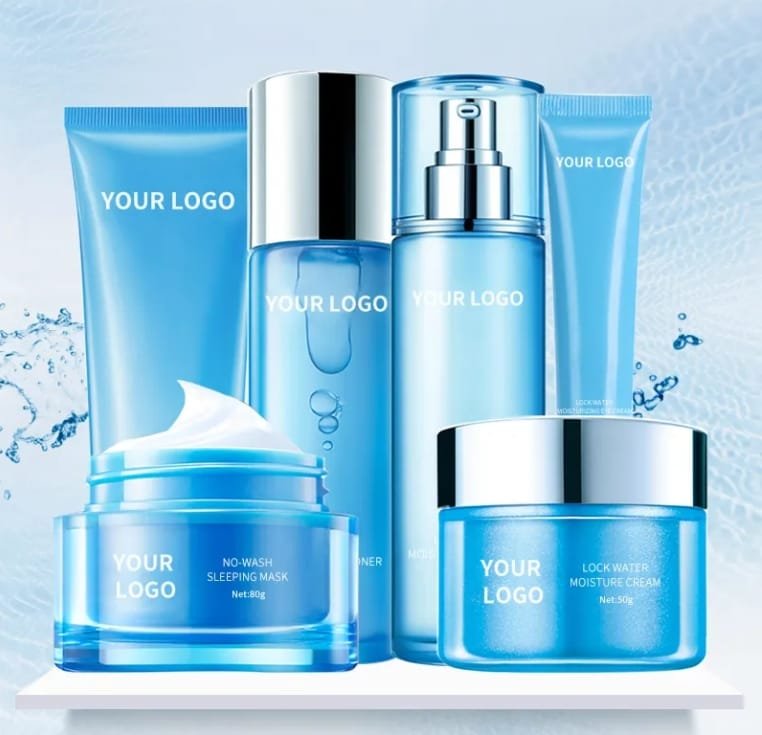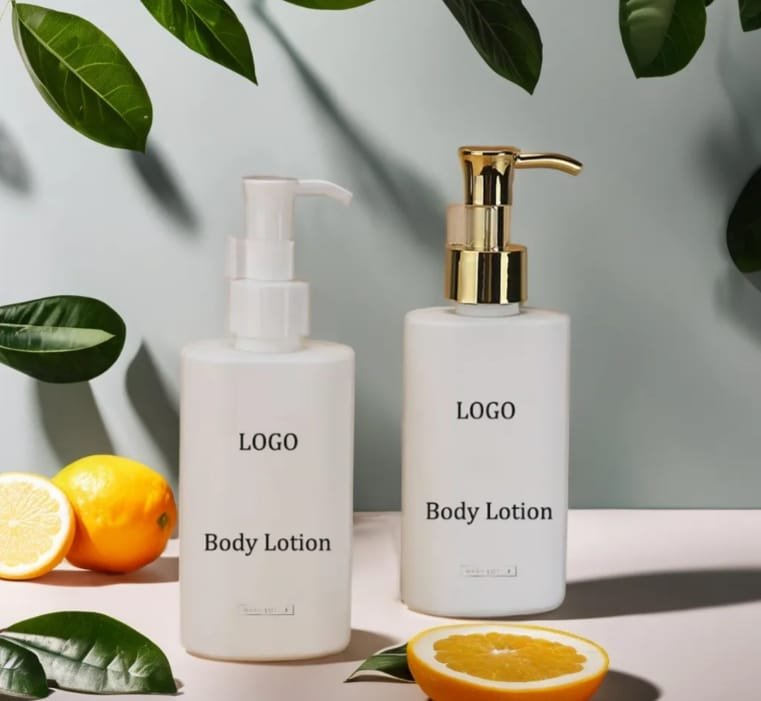The History and Evolution of Private Label Cosmetics
The concept of private label cosmetics is not new; it has been around for decades, but its significance has grown exponentially in recent years. In the early days, private label products were often associated with generic or store-branded items that lacked the prestige of well-known luxury brands. However, as consumer preferences evolved, so did the private label industry. Today, private label cosmetics are no longer seen as inferior; instead, they represent a unique opportunity for businesses to create personalized, high-quality products that cater to specific customer needs.
The rise of dropshipping, 3rd party fulfillment services, and outsourcing to contract manufacturers has further revolutionized the private label sector. Brands can now offer ready to label products without the need for large upfront investments. This flexibility has opened doors for small-scale entrepreneurs and independent beauty brands to enter the market, giving them the same opportunities as established players.

Types of Private Label Cosmetics
Private label cosmetics come in various forms, each catering to different segments of the market. Here are some of the most common types:
- Custom Labels: Brands can design their own packaging and labels, allowing for complete brand customization. This is ideal for companies that want to create a distinct identity in the competitive beauty industry. Labeling services ensure that all regulatory requirements are met, including FDA approved labeling for products sold in the USA.
- White Label Products: These are pre-made formulations that can be rebranded by the purchasing company. White label products are popular among startups and small businesses looking for a quick and cost-effective way to launch their own line. Many wholesale suppliers offer white label options, making it easier for brands to get started.
- OEM (Original Equipment Manufacturing): OEM services allow brands to collaborate with contract manufacturers to develop custom formulations tailored to their specific requirements. This option offers more control over the product development process but requires a higher investment. Cosmetic laboratories play a crucial role in this process, ensuring that formulations are safe, effective, and compliant with industry standards.
- Small Batch Production: For brands that prefer to produce smaller quantities, small batch manufacturing provides the flexibility to test new products or respond to seasonal demand without overcommitting to inventory. Factory-based production facilities can accommodate low MOQ orders, making it easier for small-scale businesses to get started.
- In Bulk Orders: Some brands opt for in bulk purchases to take advantage of lower costs per unit. This is particularly beneficial for established brands that have a steady demand for their products. Wholesale suppliers often offer bulk discounts, allowing brands to stock up on popular items like lip balm, concealer, and makeup kits at a reduced price.
Market Overview: The Global Private Label Cosmetic Industry
The global private label cosmetic market is booming, driven by increasing consumer demand for personalized, affordable, and eco-friendly products. According to Grand View Research, the global private label cosmetics market was valued at $125 billion in 2020 and is expected to grow at a CAGR of 6.5% from 2021 to 2028. This growth is fueled by several key factors:
- Rising Consumer Awareness: Consumers are becoming more educated about the ingredients in their beauty products, leading to a surge in demand for clean beauty and natural formulations.
- Personalization: The desire for customized products that cater to individual skin types, concerns, and preferences is driving the popularity of private label cosmetics.
- E-commerce Expansion: The rise of online shopping platforms has made it easier for consumers to discover and purchase private label products, especially those that are not widely available in traditional retail stores.
- Sustainability: There is a growing focus on sustainable and eco-friendly practices in the beauty industry, with many consumers seeking products that are cruelty-free, organic, and FDA approved.

Top Private Label Manufacturers by Region
North America: Canadian and USA Brands
In North America, private label cosmetic manufacturers have gained significant traction, particularly in the USA and Canada. These regions are home to some of the most innovative and forward-thinking brands in the industry.
- Bobbi Brown: A high-end makeup brand known for its natural and organic formulations. Bobbi Brown offers a wide range of cosmetic products, including lipstick, eyeshadow, and face cream, all designed to enhance natural beauty. Their private label services cater to clients who want to create premium, high-quality products. Bobbi Brown also offers vegan and halal-certified options, appealing to a diverse range of consumers.
- Huda Beauty: Founded by beauty influencer Huda Kattan, this top-rated brand has become a household name in the makeup industry. Huda Beauty offers a variety of cosmetic products, including eyeliners, mascaras, and lip glosses, all of which are cruelty-free and eco-friendly. Their private label services allow clients to develop custom formulations that align with their brand values. Huda Beauty also offers grwm (get ready with me) tutorials, providing valuable content for beauty enthusiasts.
- Revlon: A top 10 beauty brand that has been a leader in the cosmetic industry for over 90 years. Revlon offers a wide range of affordable and high quality products, including makeup foundation, compact powder, and nail polish. Their private label services provide clients with access to cutting-edge technology and expertise in product development. Revlon also offers men’s grooming products, catering to a growing segment of the market.
- Lady Burd Exclusive: A USA based brand that specializes in high quality and affordable skincare products. Lady Burd Exclusive offers a wide range of cosmetic products, including face oils, moisturizers, and serums, all made from natural and organic ingredients. Their private label services allow clients to create custom formulations that cater to specific skin concerns. Lady Burd Exclusive is particularly popular among black owned businesses, offering products that are specifically formulated for dark skin and black skin. They also offer vegan and halal-certified options, appealing to a diverse range of consumers.
Europe: Danish, German, and Italian Brands
Europe is home to some of the most prestigious private label cosmetic manufacturers, known for their commitment to quality and innovation.
- Boenk: A Dutch brand that specializes in natural and organic skincare. Boenk offers a wide range of cosmetic products, including face masks, body lotions, and facial cleansers, all made from plant-based ingredients. Their private label services allow clients to create custom formulations that are both effective and environmentally friendly. Boenk also offers adhesive products for salon use, ensuring that professionals have access to high-quality tools.
- Nars: A French brand known for its high-end and luxury makeup products. Nars offers a wide range of cosmetic products, including blushes, eyeshadows, and lipsticks, all designed to enhance natural beauty. Their private label services cater to clients who want to create premium, high-quality products that stand out in the market. Nars also offers colour options for makeup kits, allowing clients to customize their palettes to suit their preferences.
- Lush: A British brand that has built its reputation on sustainable and eco-friendly practices. Lush offers a wide range of cosmetic products, including bath bombs, body care, and hair products, all made from natural and organic ingredients. Their private label services allow clients to develop custom formulations that align with their brand values. Lush also offers juice-based products, such as face oil and body lotion, which are rich in antioxidants and promote healthy skin.
Asia: Korean and Japanese Brands
Asia is a hub for private label cosmetic manufacturing, with countries like South Korea and Japan leading the way in innovation and quality.
- Innisfree: A Korean brand known for its natural and organic formulations. Innisfree offers a wide range of cosmetic products, including skincare, makeup, and personal care items, all made from ingredients sourced from Jeju Island. Their private label services allow clients to develop custom formulations that are both effective and environmentally friendly. Innisfree also offers vegan and halal-certified options, appealing to a diverse range of consumers.
- Shiseido: A Japanese brand that has been a leader in the cosmetic industry for over 140 years. Shiseido offers a wide range of cosmetic products, including retinol serums, eye creams, and foundation, all designed to enhance natural beauty. Their private label services provide clients with access to cutting-edge technology and expertise in product development. Shiseido also offers perfumes and men’s grooming products, catering to a growing segment of the market.

Success Stories: Emerging Private Label Manufacturers
In recent years, several emerging private label manufacturers have made waves in the beauty industry, challenging traditional players and redefining what it means to be a cosmetic manufacturer. These brands have succeeded by focusing on innovation, sustainability, and consumer needs.
1. Beautihub – A Leader in Custom Formulations
Beautihub is a private label manufacturer based in South Korea that has gained popularity for its custom formulation services. Founded in 2015, Beautihub offers a wide range of cosmetic products, including skincare, makeup, and personal care items, all made from natural and organic ingredients. Their custom labels service allows clients to create personalized products that cater to specific skin types and concerns.
One of the reasons Beautihub has been so successful is its commitment to sustainability. The brand uses eco-friendly packaging and sources ingredients from sustainable suppliers, ensuring that its products are both effective and environmentally friendly. In 2023, Beautihub reported sales of $50 million, proving that sustainability can be both profitable and impactful.
2. Colorlab – A Pioneer in Color Cosmetics
Colorlab is a private label manufacturer based in Italy that has become a leader in the color cosmetics category. Founded in 2008, Colorlab offers a wide range of cosmetic products, including lipsticks, eyeshadows, and compacts, all made from high-quality pigments and natural ingredients. Their custom labels service allows clients to create personalized products that cater to specific color preferences and skin tones.
What sets Colorlab apart is its focus on innovation. The brand constantly updates its formulations to include the latest advancements in color technology, ensuring that its products are always at the forefront of the industry. In 2023, Colorlab achieved sales of $70 million, demonstrating the growing demand for high-quality, customizable color cosmetics.
3. Pinnacle – A Specialist in Skincare Solutions
Pinnacle is a private label manufacturer based in Switzerland that has gained recognition for its specialized skincare solutions. Founded in 2010, Pinnacle offers a wide range of cosmetic products, including retinol serums, face oils, and moisturizers, all made from natural and organic ingredients. Their custom labels service allows clients to create personalized products that cater to specific skin concerns.
One of the reasons Pinnacle has been so successful is its commitment to science-backed formulations. The brand works closely with dermatologists and estheticians to ensure that its products are both effective and safe for all skin types. In 2023, Pinnacle reported sales of $60 million, proving that science and personalization can go hand in hand.

Future Trends: Where Is the Private Label Cosmetic Industry Headed?
The future of the private label cosmetic industry is shaped by several key trends, all of which present exciting opportunities for manufacturers and brands alike.
1. Sustainability and Eco-Friendly Practices
Consumers are increasingly seeking eco-friendly and sustainable products that align with their values. Brands that prioritize cruelty-free, organic, and FDA approved formulations are likely to gain a competitive advantage in the market. Additionally, there is a growing focus on sustainable packaging, with many consumers opting for products that use biodegradable materials and refillable containers.
2. Clean Beauty and Natural Ingredients
The demand for clean beauty products continues to grow, driven by consumers who are increasingly concerned about the impact of synthetic chemicals on their health and the environment. Brands that prioritize natural and organic ingredients, such as shea butter, coconut oil, and green tea extract, are likely to resonate with eco-conscious consumers. Additionally, there is a growing interest in mineral-based products, such as mineral sunscreen and mineral makeup, toiletries ,which offer broad-spectrum protection without the risk of irritation.
3. Personalization and Customization
Consumers are increasingly seeking personalized skincare and makeup solutions that address their specific needs. Advances in technology, such as AI-powered skin analysis tools, allow brands to offer tailored recommendations and custom-formulated products. Private label manufacturers can capitalize on this trend by offering custom labels and small batch production services that cater to individual skin types, concerns, and preferences.
4. Affordability and Accessibility
While high-end and luxury brands continue to dominate the market, there is also a growing demand for affordable and accessible products that offer the same level of quality and effectiveness. Brands that can strike a balance between affordability and premium quality are likely to appeal to a broader audience. Additionally, the rise of dropshipping and 3rd party fulfillment services has made it easier for small-scale businesses to offer private label products without the need for large upfront investments.
5. Health and Wellness Integration
The beauty industry is increasingly integrating health and beauty into its offerings, with many brands focusing on products that promote overall well-being. Cosmeceuticals, which combine skincare and pharmaceutical ingredients, are becoming more popular, as consumers seek products that not only enhance their appearance but also improve their skin health. Additionally, there is a growing interest in functional beauty products, such as retinol serums and face oils, which offer both aesthetic and therapeutic benefits.

Dinghui Cosmetics: A Trusted Partner in Private Label Cosmetic Manufacturing
Since 2008, Chinese Dinghui Cosmetics has been a leader in the private label cosmetic manufacturing industry, helping brands bring their vision to life. With over 15 years of experience in 3rd part cosmetics manufacturing, Dinghui Cosmetics offers a comprehensive range of services, from product formulation to packaging design and full-scale production. Our state-of-the-art facility is equipped with cutting-edge technology and adheres to strict quality control standards, ensuring that every product meets the highest level of safety and efficacy.
At Dinghui Cosmetics, we specialize in OEM/ODM (Original Equipment Manufacturing/Original Design Manufacturing) services, allowing brands to create custom formulations that align with their unique brand identity and target market.Whether you’re looking for natural skincare, mineral makeup, or color cosmetics, our team of experts can help you develop products that not only protect the skin but also enhance the overall consumer experience.
We understand that building a successful brand requires more than just high-quality products. That’s why we also offer comprehensive support services, including market research, branding guidance, and logistics management. Our goal is to empower brands to thrive in the competitive beauty industry by providing them with the tools and resources they need to succeed.
If you’re ready to take your private label cosmetic brand to the next level, we invite you to contact us today. Let’s work together to create products that not only protect the skin but also inspire confidence and self-expression.
Read more Dinghuicosmetics Blog Contact us Contact Us
Conclusion
The private label cosmetic industry is a dynamic and rapidly evolving space, offering countless opportunities for brands to innovate and succeed. By understanding the historical context, analyzing top companies, and staying ahead of emerging trends, businesses can position themselves for long-term growth and profitability. At Dinghui Cosmetics, we are committed to helping our clients navigate this exciting landscape and achieve their goals. Together, we can create products that not only protect the skin but also inspire confidence and self-expression.